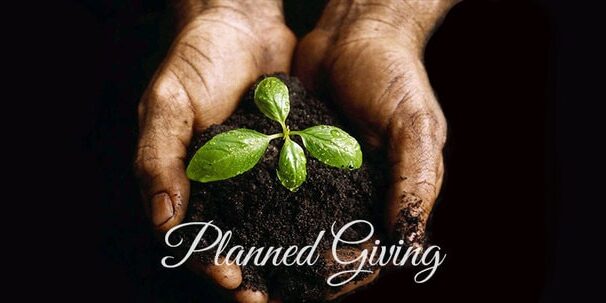Mercy in Islam
 << In the name of Allah, the Most Merciful, the Dispenser of Mercy >>
<< In the name of Allah, the Most Merciful, the Dispenser of Mercy >>
I begin this essay as a devout Muslim would. This invocation introduces all but one of the 114 chapters (surahs) of the Quran, the Muslim holy book. It also begins the prayer ritual which Muslims perform five times daily. The ritual ends with a similar aspiration, praising the Most Merciful, the Dispenser of Mercy. ¹ Other gatherings and endeavors are also typically begun in this way.
Knowing even this much about Islam helps me to appreciate Pope Francis’ statement in his proclamation of the Year of Mercy: “Islam [and Judaism] consider mercy to be one of God’s most important attributes.” ² Recently I have learned a few more things about mercy in Islam with the help of a small discussion group, a very readable book ³, and of course the internet.
I’d like to share some of these learnings and to point you to some interesting and informative sources. Let us then look at mercy both as a name of Allah (God) and as an essential practice of the good life.
Names of Allah
The Compassionate, The Loving, The Most Generous — these synonyms for “Merciful” are a few of the traditional 99 names of Allah. Different scholars come up with different lists (and of course different translations from the Arabic) for the 99. From one such list 4, I found it easy to find twenty names reflecting mercy. You might like to sample a few and pray them as a litany.
However, it seems that the most important names expressing God’s mercy are the two given in the invocation with which I began. In Arabic, they are ar-Rahman (The Merciful) and ar-Raheem (The Giver of Mercy), which Kamil Mufti calls “the personal names of the Living God.” 5
Interestingly, both ar-Rahman and ar-Raheem are derived from the Arabic rahm, meaning “womb”.
A feminist Muslim scholar, Jameelah X. Medina, notes that this etymology raises many questions, such as the following: “Of all the root words that could have been used … to describe the Creator, why were words that relate to the womb, wom(b)anhood, female anatomy, and motherhood chosen instead of some phallic symbol of power and creation?” and “Could we all have been created from the figurative or even literal Womb of Allah, making Allah The Great Mother of all creation?” 6
Muhammad as teacher and model of mercy
Muhammad is the great prophet and founder of Islam. Muhammad’s early life was marked by “that rare characteristic, love of the poor, the orphan, the widow, the weak, the helpless and the slave.” 7 He underwent years of distress over the exploitation of the poor masses in order to sustain the power of the elite (of which he was one). Once he received his prophetic calling and began to attract followers, he initiated numerous measures toward lessening the gap between the wealthy and the poor. Reza Aslan claims that “benevolence and care for the poor were the first and most enduring virtues preached by Muhammad in Mecca”. 3 Aslan quotes the Quran’s declaration (2:177) that the righteous give away wealth out of love for Allah to the needy and to those who ask.
Examples of Muhammad’s mercy range further, from charming anecdotes of his kindness toward children and animals 7 to his revolutionary modification of the Law of Retribution: “The retribution for an injury is an equal injury, but those who forgive the injury and make reconciliation will be rewarded by God.” (Quran 42:40, quoted in 3). Another dramatic act of mercy was Muhammad’s granting of amnesty to his defeated persecutors in Mecca in 630 C.E. 8
There seems to be no better way to conclude this small glimpse of mercy in Islam than with the hope of Pope Francis that the Jubilee year will “foster an encounter,” “open us to even more fervent dialogue” and “eliminate every form of closed-mindedness” toward Islam, Judaism, and “other noble religious traditions.” Inshallah! (God willing!)
Explore the many faces of mercy in the new issue of HOPE magazine, available online here.
Notes
(1) http://www.howmuslimspray.com
(2) Misericordiae Vultus, Art. 23
(3) Reza Aslan, No god but God. Random House: 2005. Updated edition: 2011
(4) www.searchtruth.com/Allah/99Names.php
(5) http://www.islamreligion.com/articles/419/divine-mercy-of-god-part-1/
(6) http://feminismandreligion.com/2013/12/22/ar-rahman-ar-rahim-and-ar-rahm-by-jameelah-x-medina/
(7) Zahid Aziz, ed. “Life of the Prophet Muhammad” in English Translation of the Holy Quran (www.Ahmadiyya.org)
(8) http://www.islamreligion.com/articles/1183/viewall/my-mercy-prevails-over-my-wrath/



Thanks a million, Ellen, for your beautiful meditation and the many invitations it offers us to grow during this year of mercy. It will nourish me many times, I think, as I celebrate the Jubilee Year of Mercy in small ways each day. Cathy C. SP
Beautiful and life-giving words, S. Ellen! A must-read!
Ellen, this is such a terrific article. No surprise to me that you are its author. Peace, Kak
This posting about Mercy in Islam touches me deeply. Through my work as a teacher of English to speakers of other languages, I have forged friendships with Muslim women as deep as those I cherish from my years at Saint Mary-of-the-Woods. My mother was also a Woods Woman, as are other members of my immediate family. What I learned from the Sisters of Providence has permeated every part of who I am.
With my friends who are Muslim, I have had, of course, those long and deep discussions that women share and treasure, growing to understand each other, and then so much more. This morning, I woke up early. I should be dashing to work, but with my “earliness” I could take a few minutes to check my email. WHAT A TREASURE this blog post is. I have posted it on my Facebook page. Pope Francis and the Sisters of Providence speak the truth to us who will listen. Thank you for using your talents to craft this call for communication and understanding among “the children of Abraham.”
What a gift of Mercy, this piece is. It sheds light on tenets of Islam and evolving thought seldom seen.
Many bloggers, just sit down and write their ideas. This a scholar’s work and makes one pause and think.
Thank you.
Your call to “eliminate every form of closed-mindedness” is being addressed to the wrong audience. Are you unaware of what is happening? Here is but one – just one! – horrific incident.
http://aranews.net/2016/06/isis-extremists-burn-death/
Mercy, you say? I have no doubt that these 19 girls were begging for mercy. A lot of good it did them.
Karen Klueh James
SMWC Class of 1980
Direct Descendant of Joseph & “Aunt Sally” Thralls
Mercy – kind or forgiving treatment of someone who could be treated harshly.
If you consider their treatment kind or forgiving, I tremble at what you consider harsh.
Salam (Peace), we have to be careful what we say like the feminist Muslim scholar, Jameelah X. Medina, who says above in the article “Could we all have been created from the figurative or even literal Womb of Allah, making Allah The Great Mother of all creation?”.
Allaah is the Creator and not a creation, He is al-Witr (The One who is similar to none), we have to be careful what we say, as Allah is the All-Hearing and All-Seeing. If you like to learn more check out Allah 99 Names here on dkir.com/99-names-of-allah/ to learn and understand and believe in the 99 Names of Allah. Its a beautiful way to increase your faith Allah Willing.
Thank you.